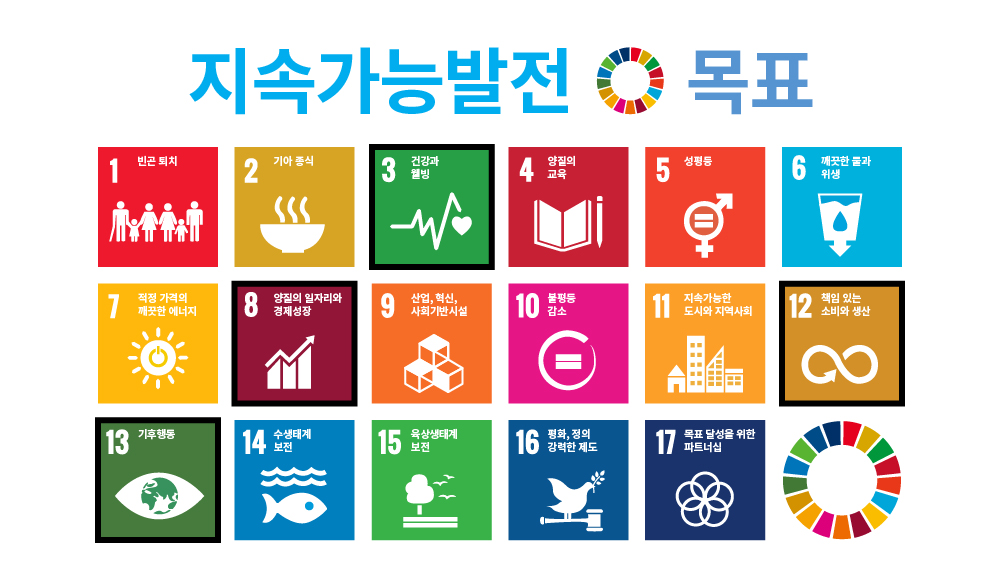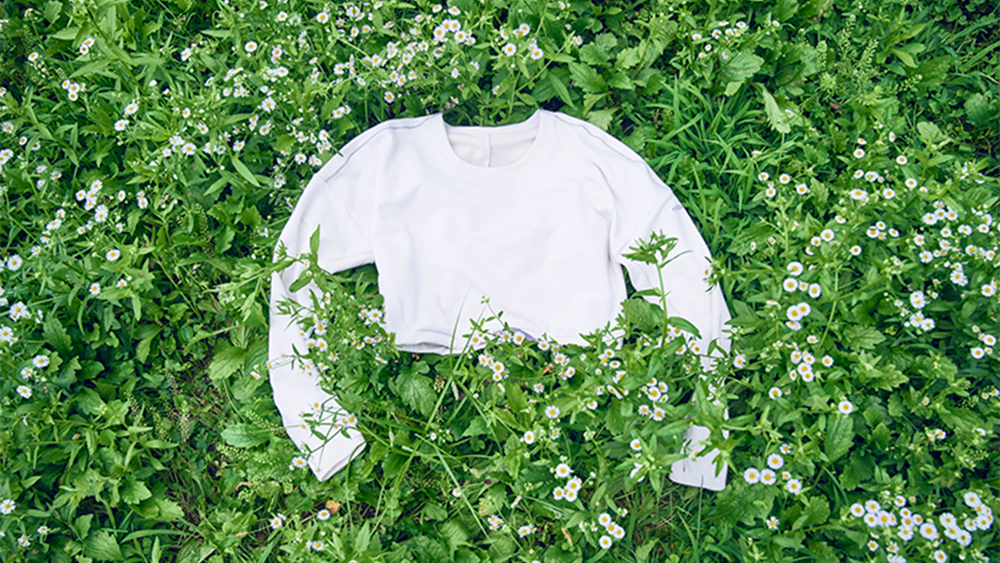Hyosung’s Eco-Friendly Spandex Made From Corn
2023.04.19
In August 2022, Korea-based comprehensive fiber manufacturer Hyosung TNC commercialized bio-based spandex, an innovative product that uses a strikingly unique ingredient: corn.
Renowned for its exceptional elasticity, spandex is generally produced using raw materials extracted from petroleum. Then what inspired and enabled the invention of corn-based spandex, given that corn is a crop that typically hardens after processing? The answer lies in the UN General Assembly of 2015.
UN’s 17 Collective Goals for Humanity
At the 2015 UN General Assembly, the world came together to adopt the Sustainable Development Goals (SDGs), a set of 17 collective goals for humanity to achieve sustainable development. Aiming to be met by 2030, SDGs cover five different domains: people, planet, prosperity, peace, and partnership.

As a company long committed to enhancing humanity's well-being, Hyosung TNC has been tirelessly working towards sustainable development. It has integrated four of the SDGs into its business operations, namely SDG3 for good health and well-being, SDG8 for decent work and economic growth, SDG12 for responsible consumption and production, and SDG13 for climate action.
Hyosung TNC: Leading the Future of Eco-Friendly Yarns
In pursuit of the four SDGs, Hyosung TNC has dedicated itself to leveraging innovative green technologies to better serve humanity. As a global leader in fiber materials, Hyosung feels an obligation to prevent climate change by developing eco-friendly fabrics and supporting a sustainable apparel industry. Pursing this path not only contributes to economic growth but also promotes the wellness and well-being of customers.
Hyosung’s relentless efforts led to the successful commercialization of its bio-based spandex, the world’s first spandex using natural materials derived from corn. This breakthrough marked the debut of corn as a viable source for producing high-performance spandex, after having long been primarily used as a food source and partially for less sensitive bio products.
The use of corns as raw materials is not entirely new, as we can see many examples around us. After corn-derived materials gained recognition as eco-friendly alternatives, polylactic acid (PLA), which is produced from lactic acid fermented from corn-derived glucose, has been widely used in toothbrushes, straws, baby tableware, trays, and other food containers, among others.
Corn-based materials have already been used for various everyday items such as paint and wrapping paper, cosmetics containing corn-derived ingredients and liquid detergents containing corn-derived deodorants. However, technological limitations prevented its application in spandex, as highly advanced technology is required to produce such a high-performance fiber with remarkable elasticity.
Hyosung TNC boasts accumulated experience and unrivaled technology for producing spandex yarn, which accounts for a third of the global spandex market. The bio-based spandex of Hyosung is the culmination of its technological prowess and more than three years of R&D efforts.

Corn: The Key ingredient of Hyosung’s Bio-Based Spandex
Corn-derived biomaterials are the key ingredients of Hyosung’s bio-based spandex. Through years-long research, Hyosung discovered the best combination of biomaterials and conventional spandex materials, developing a yarn that maintains the same performance and properties as conventional spandex.
Compared to other yarns, spandex is a highly sensitive material. In fact, even slight changes in manufacturing conditions can greatly alter its elasticity. A piece of clothing made with spandex of an unusual elasticity level leads to lower product quality, such as sweatpants stretching out after a short period of wear. This explains why Hyosung TNC is so far the only one in the world to have succeeded in developing and commercializing bio-based spandex.
Despite challenging conditions, Hyosung continued its research to utilize corn-derived materials as an eco-friendly source for spandex, placing the utmost priority on delivering world-class quality to customers.
Eventually, Hyosung’s endeavor bore fruit, making it the first and only fiber manufacturer to have developed an eco-friendly spandex yarn that performs just as well as conventional spandex. The successful development of bio-based spandex is the ultimate testament to the technological prowess and know-how Hyosung has accumulated for 60 years.
Ensuring Transparency and Environmental Friendliness across Manufacturing
The use of bio-based materials has enabled Hyosung TNC to reduce its use of fossil fuels in proportion to its use of corn-derived materials, while lowering its dependence on petroleum, which is still essential for industrial processes. While gradually replacing more petroleum-sourced materials with corn-derived materials, Hyosung TNC will continue its research until it finally develops purely corn-based spandex.
Hyosung is ensuring transparency and eco-friendliness across all manufacturing procedures, including thorough direct management of the supply of sustainable corn-derived materials. The corn used in manufacturing is not the type for human consumption, but dent corn used for industrial purposes such as fuel ethanol and cooking oil or livestock feed.
Production management is also strict. Farmers who supply corn to Hyosung TNC must meet a wide variety of requirements such as reducing greenhouse gas emissions, improving nitrogen efficiency, meticulously managing soil quality in cultivation areas, and managing supply chains transparently. All this demonstrates how Hyosung TNC defines eco-friendliness: Being truly eco-friendly not only means replacing one raw material with a bio-based one but ensuring transparency and traceability from raw material procurement to the very end of the manufacturing process. Such an uncompromising approach has earned Hyosung's bio-based spandex the Eco Product Mark, an eco-friendly certification from the world’s leading certification body SGS (Société Générale de Surveillance), providing impetus to Hyosung’s green moves.

Towards the Development of Biodegradable Yarns
Amid increased public awareness of global warming, materials such as polybutylene adipate terephthalate (PBAT) and PLA are growing in popularity and applications for their low-carbon and biodegradable nature.
Down the road, biodegradable fibers using natural materials are expected to advance from the recently emerging recycled fibers as the leading eco-friendly textiles. Indeed, biodegradable fibers decompose within a few years of being buried, causing less harm to the environment and serving as a more nature-friendly option than other fibers.
As a pacesetter in biodegradable fibers, Hyosung has already embarked on R&D in biodegradable recycled PET yarns. From manufacturing to the end of product use, protecting the environment will be the utmost priority across the entire life cycle of biodegradable recycled PET yarns, which is why they are expected to contribute to the betterment of the environment.
Hyosung TNC is leading the global fiber market while steadily developing eco-friendly fibers in a bid for a better life for everyone.